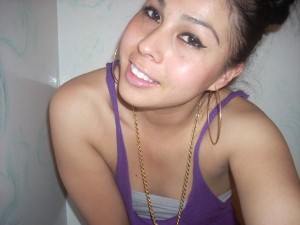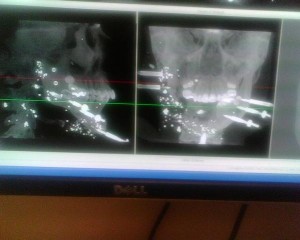
Last weekend was an especially violent one, even for Oakland. On Friday, four people were killed, and over the rest of the weekend, 11 people were shot, though not fatally. There were 126 homicides [PDF] in Oakland last year, cementing the city's distinction as one of California's more violent urban centers. Oakland certainly doesn't have a lock on gun violence. Other cities like Stockton are struggling, too. But the situation in Oakland has been going on for some time now, and locals are giving a lot of thought to what it means to live under the constant threat of violence.
As part of KQED's occasional series, "What's Your Story," Oakland native Caheri Gutierrez (pronounced "Carrie") shares her story about working with at-risk high schools students after she herself was shot in the face as a teenager. Guiterrez is a Violence Prevention Educator for Youth Alive, an Oakland non-profit with a mission to prevent youth violence. Below are excerpts of my conversation with her:
"I was just in the car and all of a sudden I started to feel like I was getting electrified. It was really intense shocks from the top of my head to the bottom of my feet. The guy that was driving, my friend, starts screaming that he’s been shot.
I reached over to him to try to help his hand and that’s when he looked at me, and he was like, ‘Oh my God, Caheri. It’s you. They shot you. They shot you.’ I touched my face and my hand just went inside of my face.
Five days later, I wake up at Highland Hospital and my hands are tied to the hospital bed. I have tubes coming in and out of my nose and out of my mouth. It was hard.

Some of my family members are, you know, gang-related, and so is my brother. And I remember my uncle asking my brother, ‘Who did it? Where are they from? What are we going to do? Are we going to get them?’And things like that. I couldn’t talk but I was just like, ‘NO. This cannot happen to anybody else.’